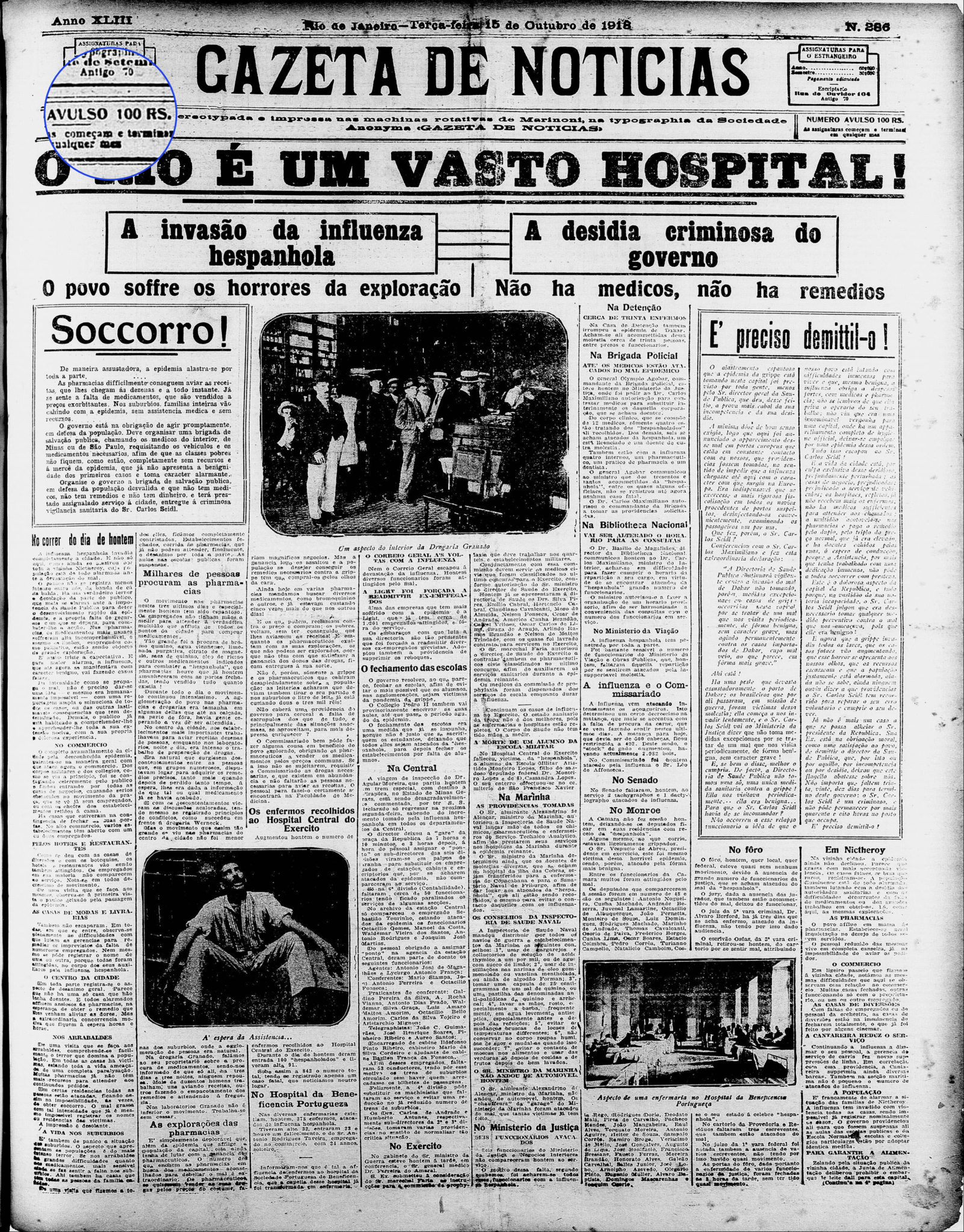In times of crisis, a much-discussed topic is whether or not newspapers should broadcast news for free.
Some of my clients are newspapers and I see the discussion in many spheres: management, commercial, newsroom, subscribers, and readers. I will try to develop some reasoning as to why newspapers should not give free news during crises.
Index
Utility and trend
We can look at this issue from two basic perspectives: short term and long term.
Short term free news
Spreading news for free can be interesting from the standpoint of generating traffic (for the newspaper) and keeping society informed (readers).
Most newspapers during COVID-19 offered free coverage or lowered their walls to cover the crisis. Some took advantage of the increase in traffic (as people sought to become a little more informed) to capture more subscribers.
Those vehicles that used clever calls, within their stories, soliciting support from readers managed to considerably increase the volume of subscribers and in some cases even subscribers.
If your newspaper has achieved this during a crisis, congratulations! You’ ve probably managed to capture a qualified lead who identifies with your vehicle, or a subscriber who saw value in your offer.
All right about the short term (as long as you have captured some subscribers).
Read also: Objectivity and journalistic perspective
Free long term news
Here lies the danger.
If you offer news for free just once, okay. The problem is doing it every crisis.
I recall that in the 2019 truckers’ strike the newspapers did the same (lowered their walls). And a year earlier they did it for another reason. And rather for another, and so it was.
What happens here is that giving news for free in times of crisis becomes something expected. This is what people end up expecting to happen.
Those that do, are telling their readers something like this:
Don’t worry! Every time something important happens the news will be free.
It gets to the point where people no longer value it and think it is an obligation. They classify newspapers as essential and public utility services or whatever else justifies having news for free.
Selfish Reader Behavior
Going through some comments in one of the newspapers I consult I came across the following comments:

Notice that this is not a montage. The 3 comments came in sequence even (and with supporters who made out).
The reader is being selfish, in some cases without realizing it. I like to think that it’s not out of selfishness but that they just didn’t think enough before commenting.
If you have made a similar comment or know someone who has, take a test. Answer these questions:
Why do you think journalists should not be paid for their work? How will they pay the rent, children’s school, food, etc.?
You will probably answer or hear answers like:
Of course journalists should be paid. It is the news that should be free!
What? Wait a minute, I don’t quite understand. Basically what they are saying then is something like this:
Journalists should be paid but I also want the news to be free. I don’t want to pay for it. Someone should pay that bill.

It is even worse when you try to justify that news should be free so that everyone has access, especially the poorest.
It goes something like this:
Journalists should be paid but I also want the news to be free. I don’t want to help the poorest. Someone must help them.
I don’t think I need to continue on this topic.
One weight, two measures
What makes a person think that someone should offer the fruit of his labor without receiving anything in return?
Do we happen to come to the supermarket and ask you to donate your entire stock of food to poor people? Do we go to a sporting goods store and ask them to donate their sneakers for free so that poor people can get fit? Are we asking doctors and nurses to work without pay?
How would you feel if someone came to you and said that it is your obligation to offer your services for free? Would you work under this condition?
Why are newspapers the only industry that apparently needs to donate their work for free to solve a social problem?
We are not going to solve the problem of poverty and social inequality by giving people free news.
Why then do people ask for free news?
People ask for free news because they think that all media outlets swim in money. This is not always true.
Look at a local newspaper in a city with less than 300,000 inhabitants and you will see a very different reality from the big portals or TV stations. And in the latter few also have a favorable financial situation.
Free news is a recent thing. Until the 90’s you could hardly find free news. I remember when I was little and asked my mother to buy a newspaper or magazine eventually (we couldn’t afford to subscribe to a magazine or newspaper because “it was expensive”). Ask your parents or grandparents what it was like to subscribe to a newspaper in the 80s.
Paying for news, a good newspaper, was the obvious thing to do if you wanted to stay well informed. That was not questioned. It was like paying for water, electricity, telephone, market, etc.
Ah, Dilmar… but in times of crisis the news should be free!
Like hell it is! They were not free during the Spanish Flu or during World War II, why should they be now? (Click on the images below to enlarge them)


So what has changed? Why do people think news should be free these days?
Advertising, Internet, and Technology Companies
The first thing that changed was advertising. In the 1980s and 1990s newspapers had a significant increase in advertising revenue. This led to the emergence of new newspapers with exclusively advertising revenue and free distribution.
Read also: Let’s ban targeted advertising!
Then came the Internet. It was a novelty and many newspapers started to publish their articles online, some in an experimental way and others as marketing. And, of course, since this was not the main focus of the business, the articles were published for free for maximum exposure.
And then the new technology companies emerged, focused on reaching as many people as possible using the money injected by their investors, and of course giving everything away for free.
We spent 10 years teaching people that money was nothing to worry about, that scale was everything, that advertising was abundant, and that people should have whatever they wanted for free.
Few managed to survive. Google, Yahoo and later Facebook are some examples but they are exceptions. Few companies that offered news for free have survived. Do you remember how many portals there were in Brazil in the late 90’s?
The free model never worked for them, they were only alive as long as their investors were putting money in. They either closed their doors or were sold/incorporated by some media company or larger company.
Crisis of 2008
The big blow to newspapers happened in 2008. After the 2008 financial crisis, newspaper advertising revenue collapsed.
Allied to this, advertisers have directed their (now scarcer) resources predominantly to Google, YouTube, and Facebook.
And now, how to keep newspapers open and profitable?
Signatures. This trend began to intensify after 2008 but is still maturing. Many people still think that everything on the Internet should be free, including news.
Ok. We no longer have the advertising revenue and the subscription model is still not sustainable. Who to turn to? Who will foot the bill for those who don’t want to pay for news or for poor people? The rich? The government?
It doesn’t make sense!
How would you like it if newspapers were sponsored by the government and we had to collect an“ISJQN” type tax (tax on journalism of any nature)?

Read also: Responsibility and privacy in the press
How to solve the issue of free news?
Think…
- Spreading the news for free did not work;
- Convincing billionaires to run non-profit news organizations didn’t work either (no billionaire likes to lose money);
- The government should make news free for all, it won’t work either (if it does it will be at a very great cost of press freedom).
News should not be gratuitous. It is a valuable product that people should be paying for. It is that simple!
The more we show people that news can/should be free or that during a crisis (whenever something important happens) it should be free, the more we hurt the industry.
We can see the damage this is causing. We can see how people’s behavior is slowly but surely leading them to think (and even demand) that news be free. We can see how the public gets angry if we don’t give free news during a crisis.
Nobody gets mad at the supermarket for selling food during a crisis. But the point is that markets have never given people that option. The newspaper industry does.
Newspapers need to make people want to support them. It doesn’t have to be a total paywall. There are several ways to do this. Regardless of the path chosen, news must have value for readers.
Maybe that’s not what newspapers are offering these days.
Continue reading: SEO tips for publishers: 10 ways to increase your audience
Continue reading: Less content = more conversion
